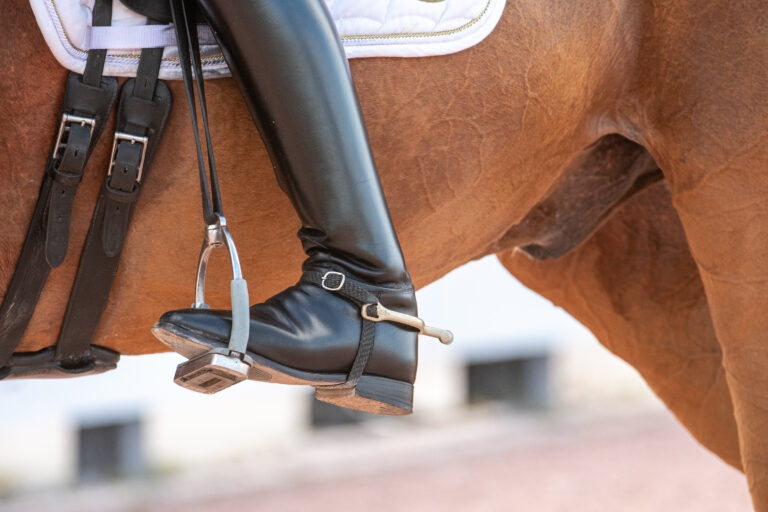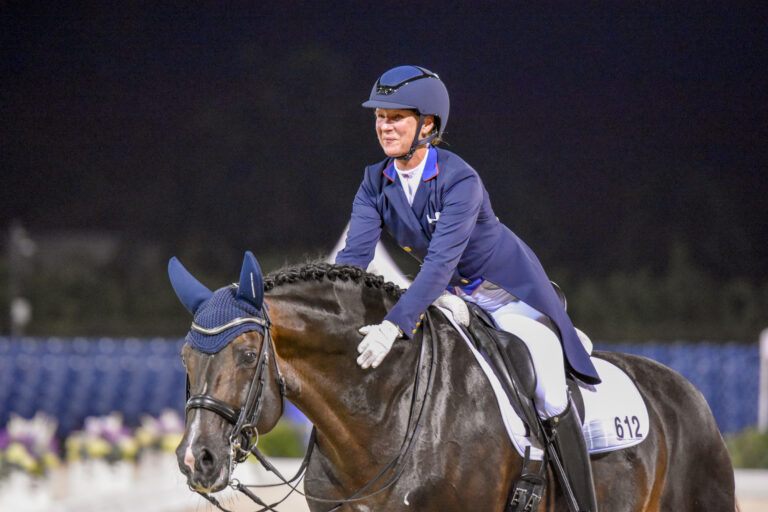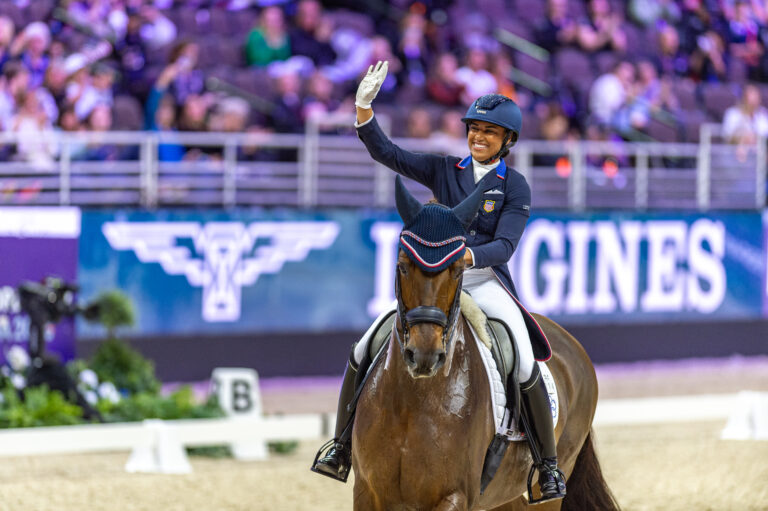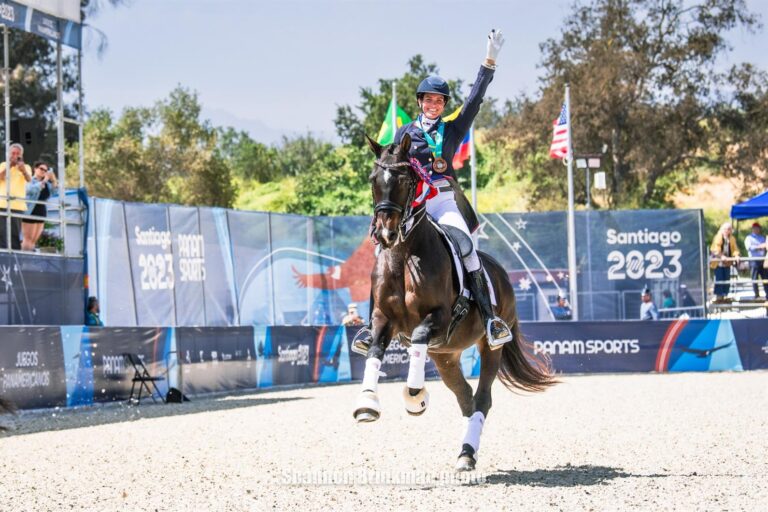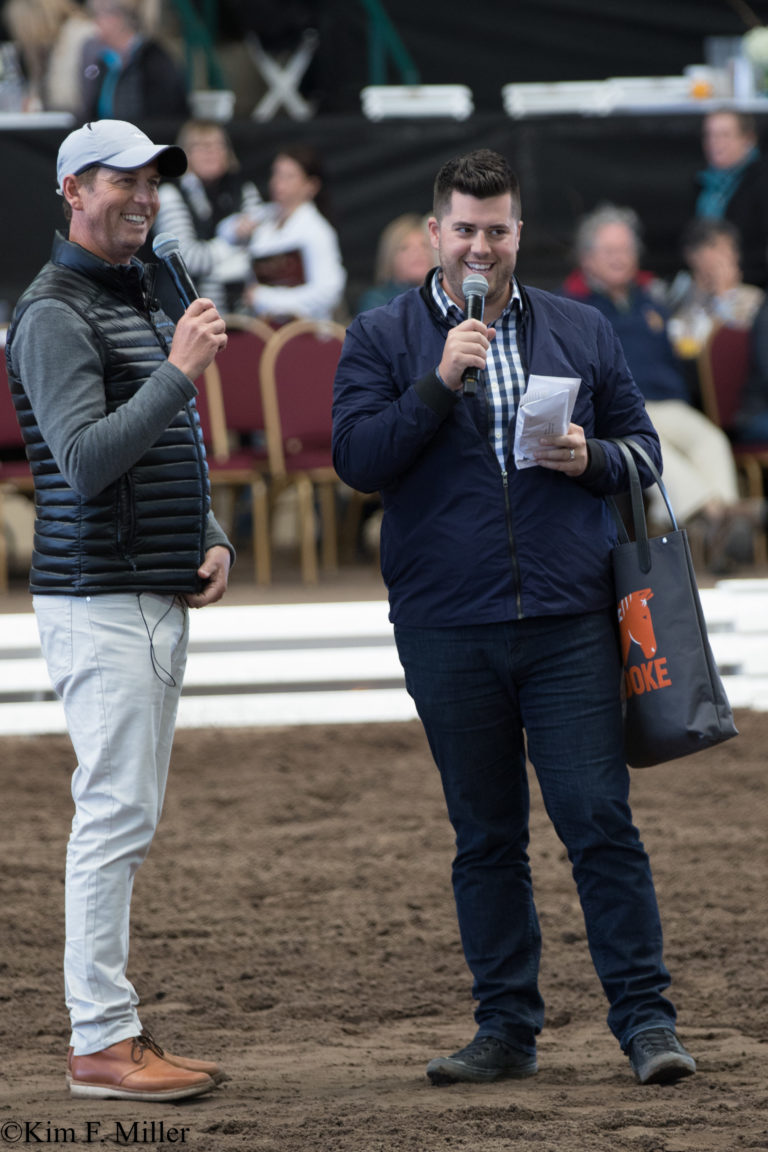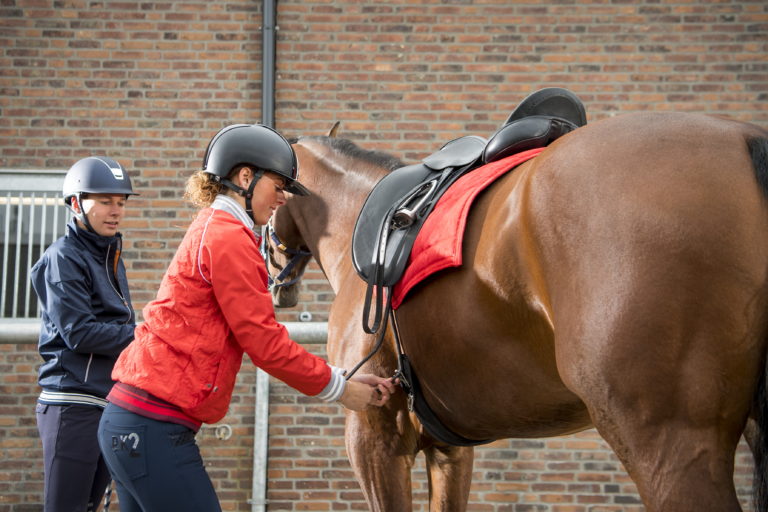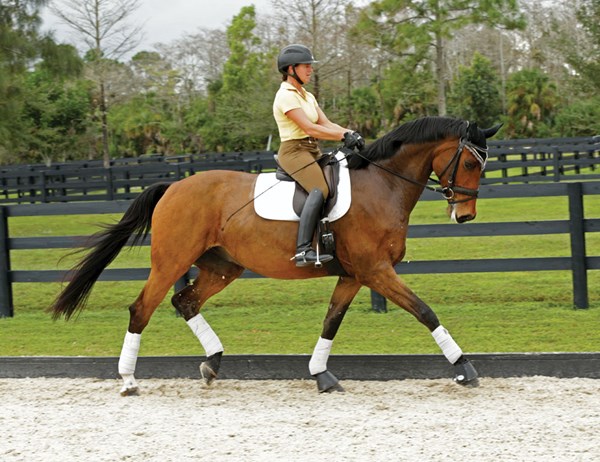Follow along with all the Olympic action from Rio!
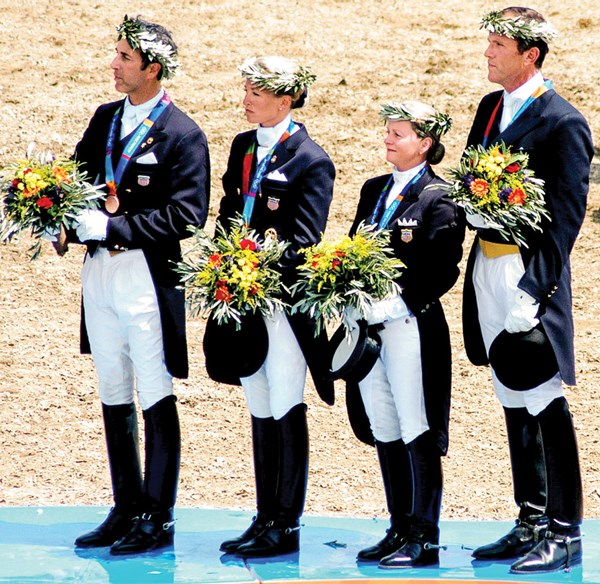
Winning the bronze medal at the 1992 Olympics in Barcelona was a landmark for the U.S. dressage team, which had been frustratingly medalless at the Games since the 1976 Olympics in Montreal. The bronze in those Montreal Olympics was the first dressage medal for a civilian U.S. team, but there would be no follow-up for 16 long years. The 1980 Alternate Olympics, the 1984 Los Angeles Olympics (a triumph for the gold-medal show-jumping and eventing squads) and the 1988 Seoul Games went by without U.S. dressage stepping up to the podium.
Everything finally came together at Barcelona, starting a run of four Olympics where the U.S. claimed bronze each time. People began assuming the U.S. was an automatic candidate for bronze since Germany and the Netherlands usually had the gold and silver covered, except for 2004 when Spain took second place. But nothing in this sport is automatic and it takes a massive effort every year to stay at potential-medal level for the Olympics.
Now with the Rio Olympics just weeks away, there’s a real buzz that the U.S. could, once again, be on the podium after failing to bring home prizes at the 2008 and 2012 Olympics. Technical advisor/chef d’equipe Robert Dover, who has labored mightily and enthusiastically to move the U.S. into medal territory once again, thinks the high-performance pool is at a level reminiscent of 2004, when he last rode on the team. The squad then also included Debbie McDonald, Guenter Seidel and Lisa Wilcox. “We knew we were going to have a medal; just not sure what color,” recalled Dover.
A well-planned buildup of horses and riders with the potential to be U.S. Olympic dressage-squad members in Rio has resulted not only in talented partnerships coming to the fore, but also in the type of depth that previously was all too rare in the country’s ranks for crucial international championships. Dover is the architect of strengthening the top of the U.S. pyramid, throwing himself into fundraising, training, cheerleading and whatever else is needed. But ask what countries he thinks are medal contenders in Brazil, and he answers this way: “I’m not even concerning myself with the other nations. I am putting all my energy into our own athletes and their horses and the machine that I have repeatedly said that I, along with our other coaches and great [USEF] staff, have been producing.”
Pressed in late spring about how the other teams might do, he replied, “While I have my inner opinion about where we are in relation to them, it’s still too early to know how things will pan out. I am as proud as I can possibly be of the growth in our team and the depth that we’re showing within our athletes, both two- and four-legged.”
Dover took over after the 2012 Olympics, finally realizing a long-held dream to be the coach after riding on six Olympic teams. Under his guidance, a fourth-place finish at the 2014 Alltech FEI World Equestrian Games (WEG) surprised a lot of people, who didn’t think the U.S. was that good before the WEG began.
The competition marked the international championship debut of a new star for the U.S. That was Laura Graves with Verdades, who finished fifth individually with an amazing 82.036 percent in the freestyle, ahead of longtime team pillar Steffen Peters, riding Legolas, in 10th place. Since she had never competed in Europe, there was quite a buzz about Graves and the horse she had owned since he was a weanling, as everyone wanted to find out more about her.
At press time, both Graves and Peters looked like sure shots for the team with plenty of other talent to support them. Most notable was Kasey Perry-Glass with Goerklintgaard’s Dublet, who scored 77.440 percent in the Grand Prix at Compiègne, France, the first leg of the European tour for prospective American team members, where the U.S. was the winner. It is important to note that four Olympic judges were presiding there.
Graves, who like Perry-Glass is coached by 2004 team-bronze medalist McDonald, was close to her teammate’s mark with 75.440 percent. Allison Brock and Rosevelt added themselves to the mix with a 73.920 percent at Compiègne. Veteran Shelly Francis and Doktor had the drop score of 71.120 percent. That’s still all to the good because it wasn’t so long ago that achieving 70 percent was the ultimate goal for U.S. riders.
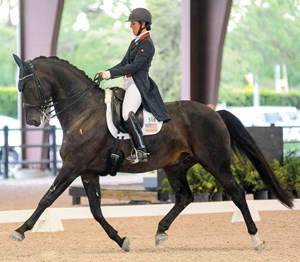
Compiègne was impressive, but inconclusive, when rain led to cancellation of the Grand Prix Special, a test that will be part of the team medal format in Rio. Even though U.S. Olympic aspirants needed to participate in only two European shows, one of which had to be Rotterdam, Holland, at the end of June, Graves decided to ride again at Roosendaal, another Dutch venue that was the first European show of the season for Legolas and Peters’ less-experienced mount, Rosamunde.
Peters, ranked seventh in the world, earned 76.820 percent with Legolas, and Graves, marked at 75.800 percent, wound up first and second, in the 4* Grand Prix. They collected 75.863 and 74.225 percent respectively in the Special. Then Peters finished third on Rosamunde (72.220) in the 3* Grand Prix and in the 3* freestyle as well with 77.250 percent, just 0.400 percent off the winner’s score.
Peters (Legolas), Graves and Perry-Glass were named to the team for the 5* Nations’ Cup at the final observation event along with Francis. Brock, Tuny Page (Woodstock), Guenter Seidel (Zero Gravity) and Peters with Rosamunde were selected to ride as individuals in the show’s 3* competition as was Francis with her second horse, Danilo. After Rotterdam, the horses and riders will go back to their European base in Belgium. Dover also planned to have an American presence in the Nations’ Cup in Aachen during July, but whether it would involve Olympic team members or other riders was undecided at press time. The U.S. holds the lead in the dressage Nations’ Cup series, and Dover understandably would like to win it. But the first priority naturally is the Olympics, and in any case, the team will leave Europe on Aug. 1 and fly directly to Brazil.
In March, Dover went to Brazil on a brief USEF-sponsored trip to see the showgrounds and where the riders will be staying. While things were not finished when he was in Rio, “There was a great deal of enthusiasm in the people who were getting the job done,” Dover declared. The news out of Rio generally has been bad leading up to the Games, from the Zika virus (with some health officials and Brazilian athletes suggesting the Olympics shouldn’t be held in Rio) to the impeachment proceedings against Brazil’s president, terrible pollution in the waterways (even next to the Olympic stadium) and the story in May about Spanish Olympic sailors who were mugged in the high-crime city, where their equipment was stolen. And then there’s the country’s economic situation, the worst since they began keeping records about it in 1901.
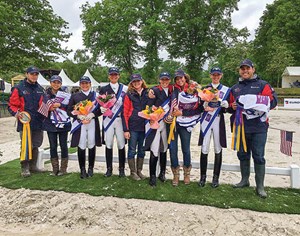
But that doesn’t discourage the irrepressible Dover. “As I look back through all the Olympic Games I have participated in, only one of those [Los Angeles 1984] happened without there being concerns,” he recalled. Even so, all those Olympics were “eventually successful and well-prepared. There are definite concerns that are understandable, but I think that in all probability, we’ll look back and say the competition and venue ended up being as fine as the previous Games.”
Will Connell, the USEF’s director of sport, acknowledged that “Rio is a challenging environment, no doubt about it. You put together all the challenges, whether that is security, transport, accommodation, Zika, government-level politics, the economic situation, but conversely, there are huge benefits that the Olympics can bring to Rio.” As far as the U.S. goes, Connell said, “We have great leadership from the U.S. Olympic Committee. I think winning in the face of adversity only adds value to that achievement. There’s always adversity in life, isn’t there? We have to go there with positive intent, but I
think it is entirely doable.”
The team’s housing will be split between a hotel and the Olympic Village. The idea is “to create the best possible environment for everyone to perform to their best,” Connell explained. He added, “My focus is on doing all I can to get U.S. athletes on the podium in Rio. I’m very conscious of all the concerns out there and, of course, we’ll keep an eye on them.”
Things generally work out differently in practice than on paper when it comes to top-level competition results, though without the vagaries of course design and the requirement of clearing large obstacles, dressage tends to be more predictable than eventing or show jumping.
Looking at which other nations will be in real contention for Rio’s medals, anyone who follows dressage likely will name Germany, the Netherlands and Great Britain as favorites for the podium. Those who are particularly well-informed about the sport, however, might well rank the U.S. as the top contender in the next group, the spoilers capable of edging out one of the presumptive medal countries, while putting Sweden and perhaps Spain, with world No. 2 Beatriz Ferrer-Salat, in its corner for that category as well. It’s a different situation than show jumping, where there are perhaps eight or nine countries that could win a medal on the right day.
Even without Damon Hill NRW, a pillar of its 2012 Olympic and 2014 World Championship gold-medal teams, Germany has a sparkling long list. The Nations’ Cup team at Aachen in July would include perennial star Isabell Werth, the world No 3., (Weiheigold OLD); German national champion Kristina Bröring-Sprehe (Desperados), ranked No. 1 in the world as of June and a veteran of Germany’s 2012 Olympic silver-medal team; Dorothee Schneider with the 10-year-old Showtime; and then the least-experienced rider in the group, 21-year-old Sönke Rothenberger and Cosmo. That should give a big hint as to what the German team leadership is thinking, but the Olympic squad wasn’t named until Aachen and there were plenty more contenders on the long list.
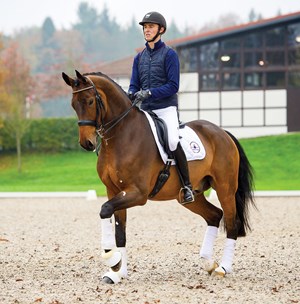
Meanwhile the Dutch and the British, who won gold at the 2012 Olympics, are not as strong as they have been in the past. The Netherlands’ longtime pillar, Edward Gal, had a fall in March and was injured, but came back in April on what had been his top horse, Glock’s Undercover (second in the 2015 World Cup Final) who did not perform up to par after an eight-month layoff. Gal was ranked No. 12 in the world in June on Glock’s Voice, one slot ahead of Graves. Gal’s partner, Hans Peter Minderhoud, was ranked fifth on Glock’s Voice. His countryman, Diederick van Silfhout, had a ranking of 11 with Arlando NOP.
Great Britain’s Charlotte Dujardin, the Olympic, European and World Champion long ranked No. 1, in June stood No. 47 in the world standings. Her top mount, Valegro, raised some eyebrows because prior to the selection trials, he hadn’t competed since last August’s European Championships. Like other team contenders, he was scheduled to show at Rotterdam. Valegro also was supposed to appear at England’s Hartpury College Dressage Festival in early July, a final stop before the Olympics along with Dujardin’s mentor and trainer, Carl Hester, on Nip Tuck. Another likely Olympic starter for Britain is world No. 18 Fiona Bigwood, winner of the Grand Prix Special at Roosendaal with Atterupgaards Orthilia.
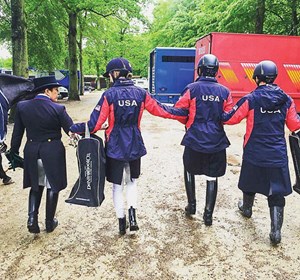
SaveSave


